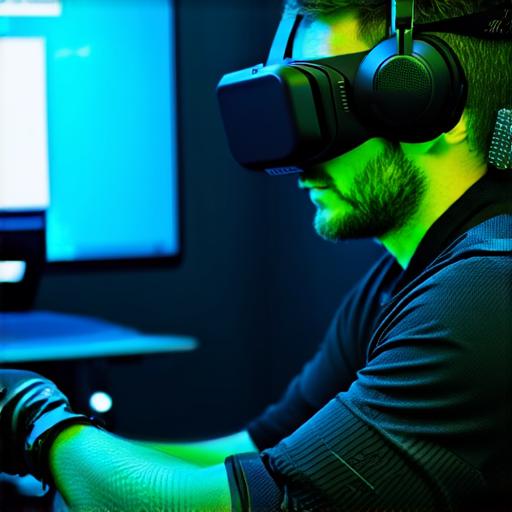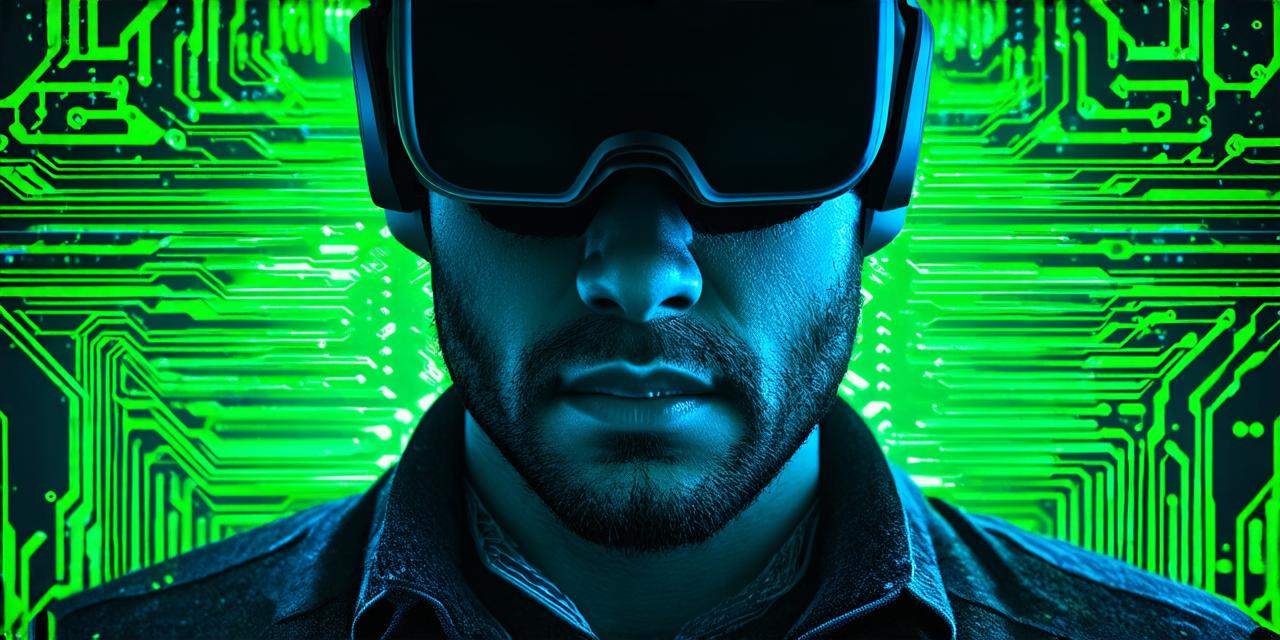Virtual reality (VR) has been a game-changer for many industries, including entertainment, education, and medicine. It allows users to experience immersive environments and interact with them in ways that were previously impossible. However, while VR technology has the potential to revolutionize the way we live, work, and play, it also poses some serious risks to our health and well-being.
In this article, we will explore some of the potential negative effects of VR, including motion sickness, eye strain, and addiction. We will also discuss the impact that prolonged use of VR can have on our cognitive function, and the long-term consequences of exposure to virtual environments on our mental health.
Motion Sickness:
One of the most common side effects of VR is motion sickness. This occurs when the brain receives conflicting signals from the eyes and ears about the user’s position in space. The result can be a range of symptoms, including nausea, dizziness, and headaches. For some users, these symptoms can be severe enough to cause them to withdraw from VR use altogether.
Eye Strain:
Another common problem associated with VR is eye strain. This occurs because the eyes have to work much harder than normal to process the visual information presented by VR headsets. This can lead to dryness, irritation, and blurry vision. In some cases, eye strain can be so severe that it causes discomfort while using VR, and even after use.
Addiction:
There are concerns that VR technology could be addictive, with users becoming so immersed in virtual environments that they lose touch with reality. This is particularly concerning for younger people who may not have fully developed their sense of self or the ability to distinguish between fantasy and reality. Addiction can lead to a range of negative consequences, including social isolation, depression, and anxiety.
Cognitive Function:
Prolonged use of VR can also have an impact on our cognitive function. Studies have shown that exposure to virtual environments can cause changes in memory, attention span, and decision-making abilities. This is particularly concerning for older people who may already be at risk of cognitive decline. In addition, some studies suggest that prolonged use of VR can increase the risk of developing conditions such as Alzheimer’s disease.
Mental Health:
Finally, there are concerns about the impact that VR technology can have on our mental health. While VR can be a useful tool for treating conditions such as PTSD and anxiety disorders, it can also cause psychological distress in some users. For example, exposure to virtual environments can trigger traumatic memories or feelings of fear and anxiety. In addition, some people may become so addicted to VR that they neglect their real-life responsibilities and relationships.

In conclusion, while virtual reality technology has the potential to revolutionize many aspects of our lives, it is important to be aware of the potential risks associated with its use. These risks range from motion sickness and eye strain to addiction, cognitive decline, and mental health issues. By understanding these risks and taking steps to mitigate them, we can ensure that VR technology is used in a safe and responsible manner.



